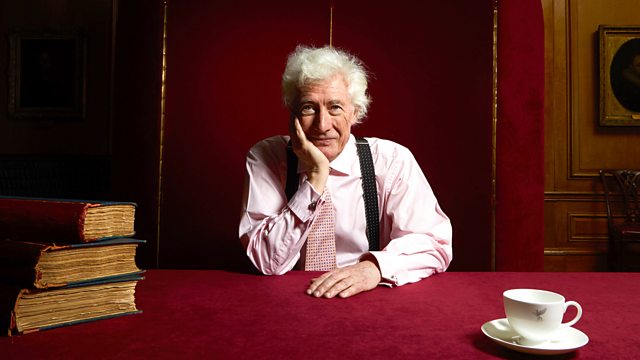True liberty is a state very few, if any, of us experience. The basic fact that we live in a society means that our freedoms are fettered, whether that be because we feel an obligation to follow the rules of our society, or because we fear the consequences of breaking such rules. Some rules are easy to see, accept and follow. Others are more debatable. It is the role of the government and legislature (and on occasion, the courts) to decide if such rules are required to aid the functioning of the society, or if they hinder it, and can be dispensed with.
It is this focus on the functioning of society that is important. There are many things that may be thought undesirable, but that the state has limited justification for interfering with. For instance, let us compare base-jumping and keeping dangerous dogs. Both are inherently risky activities, yet we are allowed to do the former, and prohibited from doing the latter. This is because we, as a society, understand that the risk of base-jumping is primarily to the individual who has assumed the risk, while the risk of dangerous dogs is beyond the individual, to the community. It would be absurd to say that, in exchange for being a part of the community, we must all tacitly assume the risk of one individual’s selfish desire to own a dangerous dog.
This is a distinction that Lord Sumption has failed to draw in his most recent article for The Times. In this piece, he condemns the lock-down as a ‘wicked’ infringement of our liberty, continuing on the same vein as in his interview to BBC News, where he said he would be happy to assume the risk of going to a crowded pub. He argues that rather than continuing to impose a coercive lock-down, the government should recognise that we are free citizens, and that in being free, we can ‘willingly take risks’ and ‘make mistakes’.
Lord Sumption justifies this conclusion on the basis that the NHS is ‘not at risk’, as the government has successfully increased intensive care capacity, and so the quarantine can only be explained on the basis that it is ‘shielding us from the risk of infection’. This is a curious conclusion, as the third part of the government’s slogan was to ‘save lives’, which is achieved most successfully through not spreading the virus in the first place. With the virus is still firmly entrenched among the UK’s population, the fundamental rationale has not changed – only the means of achieving it have.
It is seemingly because an arm of the state – the NHS – is no longer at risk, that Lord Sumption concludes that the question of ‘what risks we take with our own health’ is no longer a question for the government to help us answer. Instead, as we ‘are not fools or children’, we do not need to ‘be told by ministers what is good for us, and forced by police officers to do it’. Rather, the question of whether to isolate or not should be a voluntary one, with who choose to do so ‘no worse off than they are under the current compulsory regime’.
Sumption’s argument is flawed in two ways. The first is to assume that the risk-taker is akin to the base-jumper, rather than the dangerous dog owner. The second is to assume that everyone will be able to make a voluntary decision about whether to break the lockdown or not.
This coronavirus is loathsomely furtive. Not only is it contagious before it is symptomatic, but it can remain entirely asymptomatic while still being contagious. As we do not have an effective diagnostic regime, it is therefore impossible for someone to know if they are at risk of spreading the disease. In confidently striding out, happily accepting the risk of contracting coronavirus, you are not the base-jumper, but the dangerous dog owner. You may have accepted the risk that your dog bites your face off, but the members of the public your dog encounters have not.
Lord Sumption may try to distinguish this scenario on the basis that we all know, when we step out our front door, that there is a risk of infection, and so accept that risk. This would be persuasive, except for the fact that we are not all in a position to make such a voluntary choice. Some of us are able to work from home, conducting meetings and other inter-personal tasks over Zoom or via email. Working from elsewhere may be desirable, even preferable, but is not necessary.
For many, however, there will be no choice. Retail workers, for instance, will be told that they are required back at work and the furlough scheme is over for them. The scheme does not operate on the request of the employee, but the employer. If they are told to go back to work, unless their employer is particularly sympathetic, they will face the choice between going to work and running the risk of contagion, or staying at home and losing their job. Hardly voluntary.
Beyond this, the inevitable consequence of a more libertarian regime would be a rise in infections, a return of the threat to the NHS, and presumably, another lockdown. According to Sumption’s own logic, this would be justified as it affects the state itself. And while this current lockdown may be bad, many businesses have said they can survive it- but that if they open up, and then have to shut down again, that will be the end. While the ‘R rate’ is still so high, it would seem that returning to normal life, governed only by ‘common sense’, is either hopeless optimism or defiant recklessness.
Such an argument is not to downplay the costs of this lockdown. The physical and mental harm done, the financial struggles of businesses and the sheer absence of any meaningful life for many are all devastating. Yet even if we try and open society, going ‘back to normal’, many of these struggles will still persist. It will be months before a sustainable number of people are willing to go to restaurants or attend the theatre- industries which already exist on narrow profit margins.
For such industries, there is a legitimate question over what is to be done in the medium term. The government cannot continue to prop them up forever. But that is a question for when the virus has been meaningfully contained- not when the government has just managed to get the daily death rate from the virus below 200. When considering the cost, it should also be remembered that the bailout of the banks in 2008 was £500 billion. Leaked documents from the Treasury suggest they estimate the final bill could be as high as £337 billion for this crisis. This is not to suggest that the banks did not warrant bailing out, but is helpful context when the government inevitably suggests the current relief is not sustainable.
Lord Sumption’s argument is not a popular one. Most people still support the lockdown, despite the costs and despite the fact that many face relatively little real risk, as he points out. For the fit and the young, the risk is negligible. Perhaps we should be grateful that our society values the vulnerable so highly, rather than seeing their deaths as a necessary cost of doing business.
And even if Sumption’s view was popular, it would still be wrong. It is an atomistic view of society, where we all act according to our own individual good, with little thought of how our actions, even if they bring us great satisfaction, can have a devastating impact on others. It hardly merits the label society at all.
There are plenty of reasons to criticise this government, and there may have been a route that would have avoided any lockdown. But the government has to make policy based on what has happened, rather than what it would have liked to have happen. They didn’t choose such a route, and we are where we are. No one likes it, but it is sustainable, at least for a little while longer. Otherwise, we risk looking like the American protestors bearing signs saying ‘give me freedom or give me death’, forgetting that right now, for many, they are one and the same.







